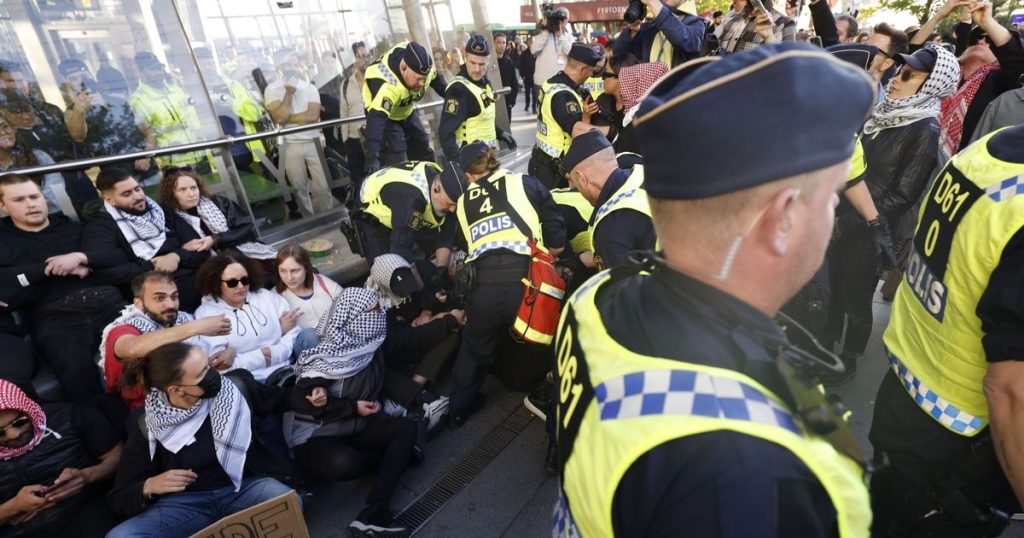The Eurovision Song Contest is taking place in Malmo, Sweden, with Israel’s Eden Golan participating. Pro-Palestine protesters demonstrated outside the venue entrance, calling for a boycott of the competition. Riot police clashed with protesters, leading to several detentions. The protesters chanted slogans like “free Palestine” and “shame” as Golan prepared to perform alongside other contestants.
The contest began with Sweden’s Marcus & Martinus, followed by Ukraine’s Alyona Alyona and Jerry Heil and Germany’s Isaak. The Netherlands’ entry, Joost Klein, was disqualified due to a “threatening movement” he made towards a camerawoman. The Dutch broadcaster expressed disappointment over the disqualification. Despite attempts to find a solution, the European Broadcasting Union decided to remove Klein from the competition, causing controversy.
The incident involving Joost Klein occurred after his performance when he was filmed against his wishes. The EBU and police investigated the incident, leading to the disqualification. The Netherlands’ Songfestival expressed disappointment over the decision. Klein’s disqualification led to a shakeup in the competition lineup, as other contestants continued to perform. The final showcased a diverse range of songs and performances from various countries.
Pro-Palestinian demonstrators faced off against Swedish police forces outside the venue, disrupting the opening of the Eurovision final. The clashes between protesters and law enforcement created an atmosphere of tension, overshadowing the musical performances. Despite the uproar, the contest proceeded with scheduled acts taking the stage. Security measures were heightened to ensure the safety of attendees and participants amidst the chaotic scenes.
The Eurovision Song Contest, known for its celebration of musical diversity and talent, faced challenges during its final night in Malmo. The presence of Israel’s Eden Golan sparked protests and calls for a boycott, highlighting the ongoing tensions in the region. The disqualification of the Netherlands’ entrant added further controversy to the event. Despite the disruptions, the show went on, with contestants delivering their performances amid a backdrop of political unrest.
As the Eurovision Song Contest unfolded, the focus shifted from music to politics, as protesters clashed with authorities outside the venue. The incident involving Joost Klein highlighted the challenges faced by organizers in maintaining the integrity of the competition. Despite the disruptions, the show continued, with performers from a range of countries showcasing their talents on stage. The controversy surrounding the event raised questions about the intersection of music, politics, and activism on the global stage.


